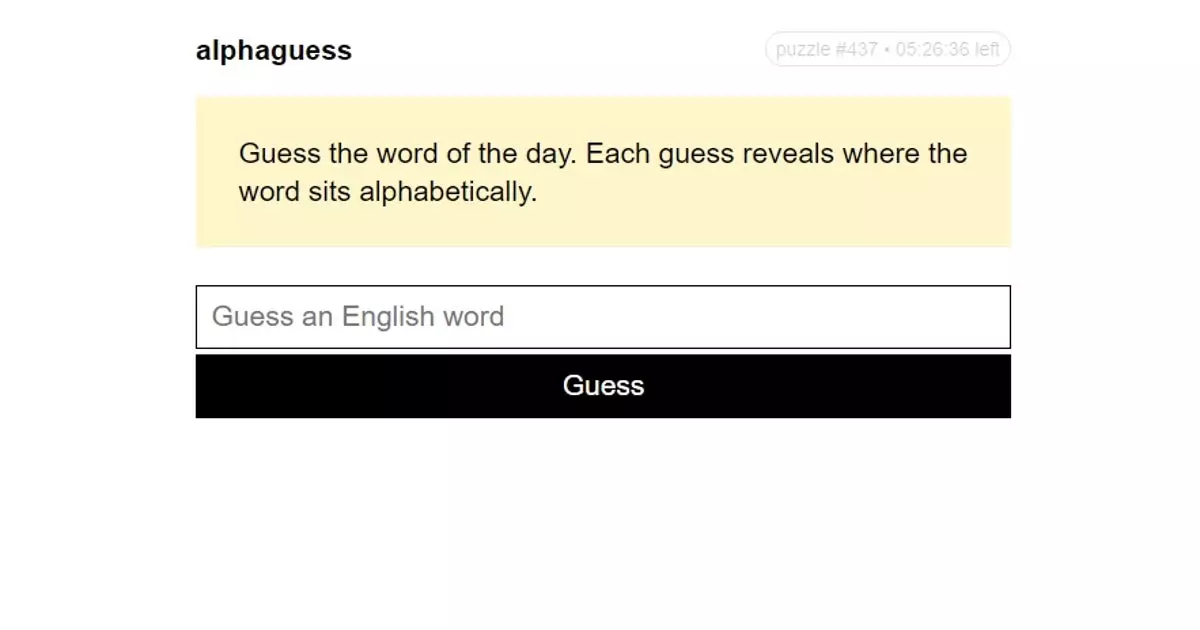In a world filled with endless tasks and ever-mounting pressure for productivity, the emergence of browser puzzle games serves as an enticing reprieve. These games—I liken them to small diversions that tease the mind while simultaneously derailing one’s productivity—offer a beguiling escape. Among the flock of these distractions, one stands out: Alphaguess, a straightforward daily puzzle that beckons with the allure of intellectual stimulation yet poses a challenge to one’s efficiency.
Alphaguess invites players to engage with language in a way that feels refreshingly uncomplicated. Players are prompted to guess a specific word and are guided by feedback indicating whether their guesses rank higher or lower in the alphabet than the target word. It’s a simple premise that evolves into more than just a guessing game; it’s a mental exercise that plays on the patterns of language and memory. However, the simplicity can also breed frustration. The evolving nature of guesses—while ensuring that every attempt edges you closer to success—can prolong the experience and expose one’s shortcomings in word retrieval.
The initial guesses can feel instinctively strategic, yet I often find myself lost in a sea of options—struggling not with the mechanics of the game, but with my own cognitive biases. The initial enthusiasm quickly morphs into a contemplation of my linguistic limitations as I oscillate between logical approaches and random selections. It’s a curious blend of stress relief and stress induction, and this duality encapsulates the magic—and the menace—of such games.
Puzzle games such as Alphaguess boast an accessibility that invites participation but lack the layers often associated with traditional puzzles. Where one might engage with a complex Sudoku or decipher intricate riddles, Alphaguess strips away the necessity for lateral thinking or advanced logic. It serves not necessarily as a test of intellect but rather a game of chance blended with familiarity. This distinction raises an important question: Are we allowed to classify these simple games as puzzles? Can we acknowledge their role in our lives without relegating them to mere fillers?
The experience of playing Alphaguess transcends the narrow definition of a puzzle. It is, in essence, a shared societal ritual; one in which the boundaries of competitive spirit soften as we engage with others over our daily victories and defeats. These brief encounters with words reflect an underlying community, one that selects its language and embraces its challenges, even if they are fundamentally trivial.
The charm of browser puzzle games such as Alphaguess lies in their dual nature—conveying the essence of both entertainment and distraction. They provide players the gratifying thrill of solving daily conundrums while simultaneously offering a gentle nudge away from productivity. This paradox is what makes them so intoxicating. In a time where relentless efficiency is venerated, these puzzlers serve as a reminder that sometimes it’s okay to indulge in the foolishness of play, even if only for a brief moment.


Leave a Reply